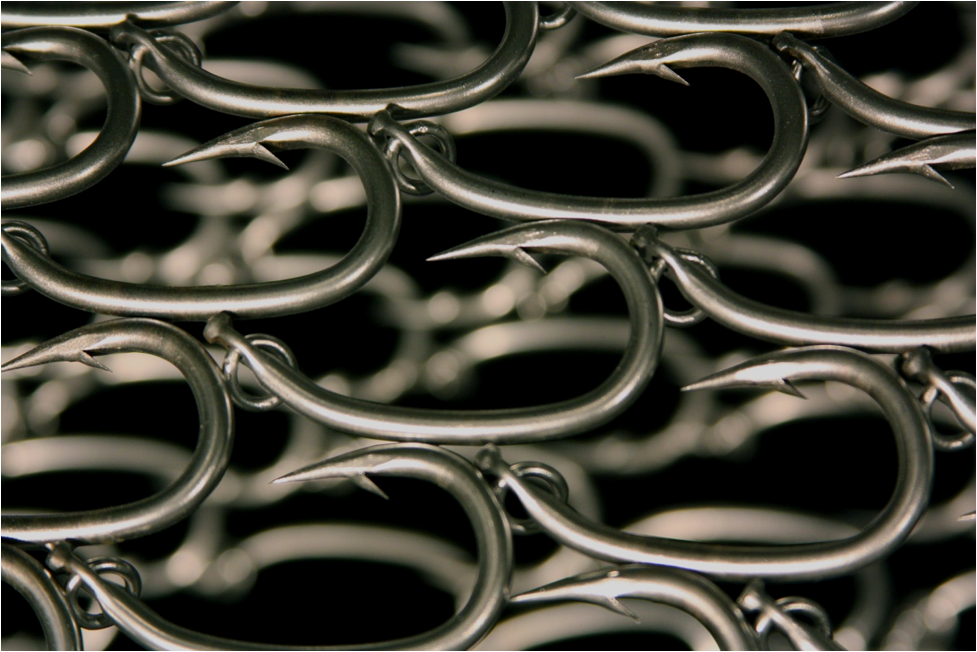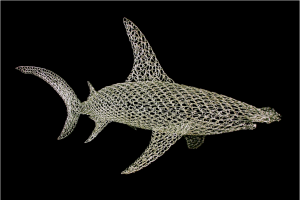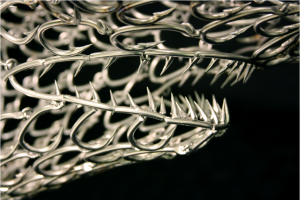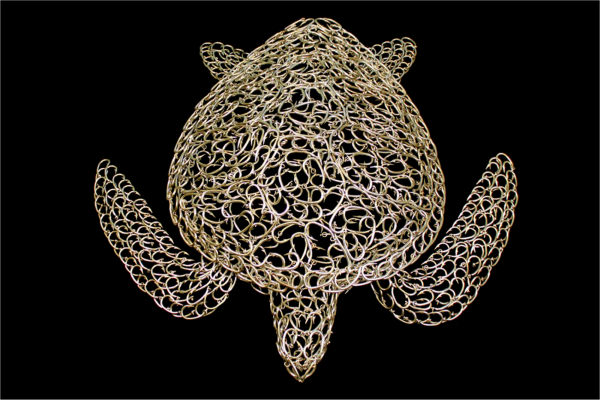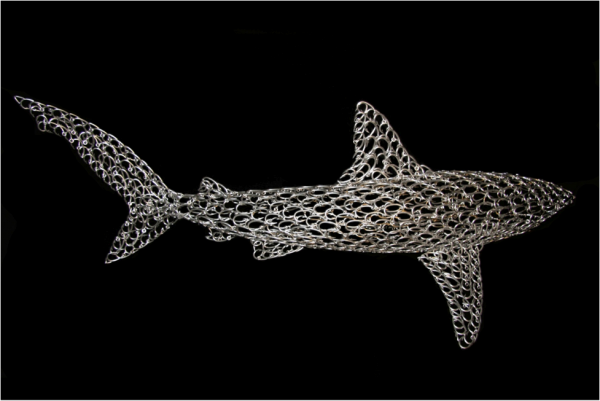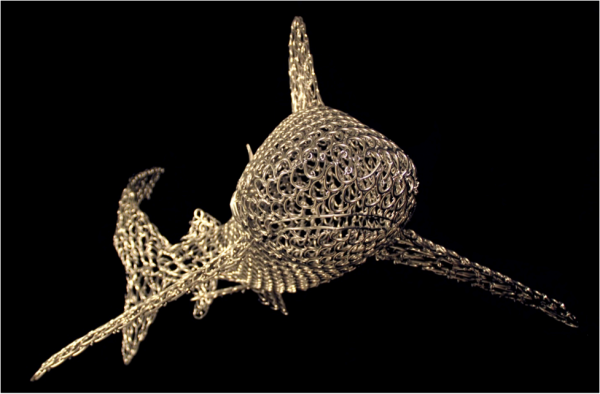“EACH TIME I’M CONFRONTED with raw nature and wilderness, either on land or under water, I can’t help but feel one with everything that exists on our planet. It humbles me, that indescribable beauty, and it never ceases to amaze me. But Western society has limited most people from having these experiences often enough, and in time, most of us have forgotten this crucial sense of wonder. We don’t feel we have the responsibility to protect what we don’t see on a daily basis. And that’s a reality that’s very dangerous.”
– Vincent Mock
I recently sat down for a skype interview with Dutch artist and activist Vincent Mock. Vincent is a sculptor, but his pieces are unlike anything I’ve ever seen — he creates life-sized sculptures of sea animals made entirely of long-line fishing hooks.
